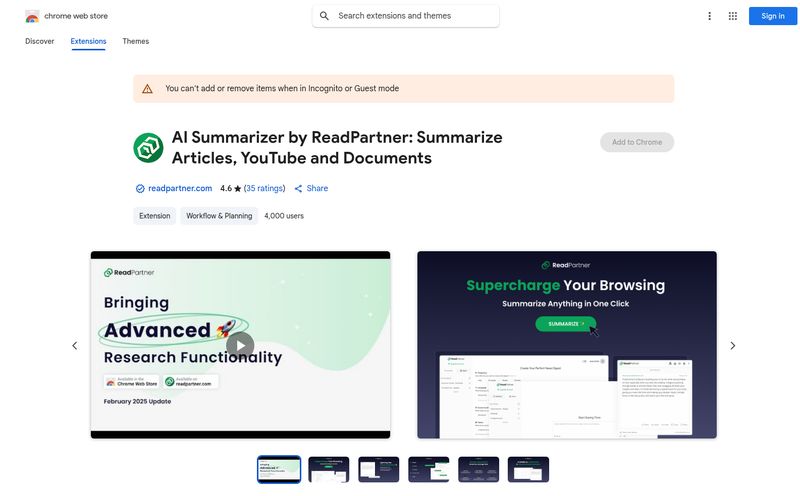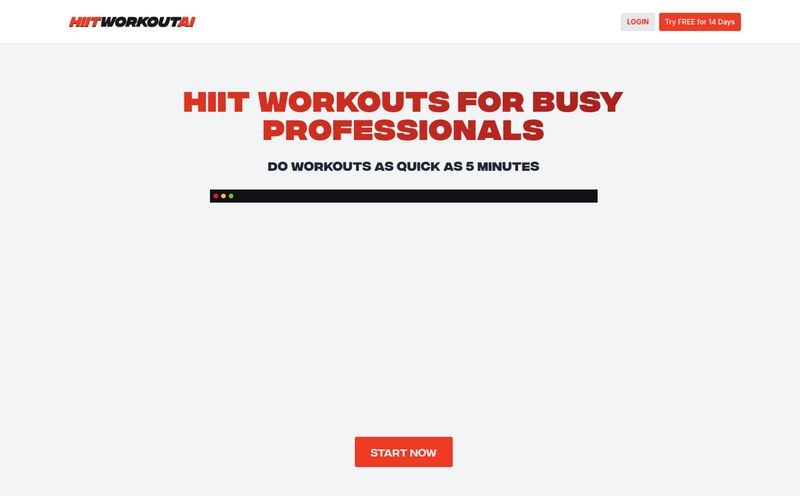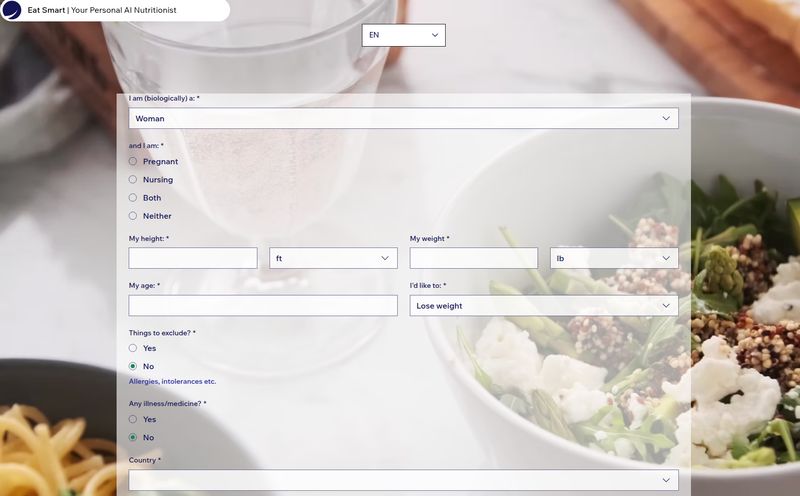It’s 11 PM on a Tuesday. You’re staring into your medicine cabinet, holding a bottle of over-the-counter cold medicine in one hand and a new vitamin supplement you just bought in the other. A thought pops into your head: “Can I… can I take these together?”
We’ve all been there. That little moment of health-related uncertainty where a quick, reliable answer would be a godsend. For years, the answer was a frantic trip down the Google rabbit hole, sifting through forums, blogs, and WebMD pages, trying to piece together a coherent answer. It’s exhausting.
Lately, though, there’s a new promise on the horizon. With the explosion of AI, we’re seeing a wave of specialized GPT tools designed for everything from coding to cooking. And, you guessed it, healthcare. One name that floated across my desk recently was LifecareGPT, billing itself as a free AI pharmacist. An AI in your pocket, ready to answer your medication questions anytime. Sounds pretty amazing, right? I thought so too.
What Was LifecareGPT Supposed to Be?
The concept behind LifecareGPT is genuinely compelling. The idea is to have an AI-powered chatbot, accessible 24/7, that can provide guidance on medications, health concerns, and even supplements. Think of it as a first line of inquiry. Instead of getting lost in the search engine chaos, you could just… ask.
From what I could gather, the value proposition was crystal clear:
- Immediate Access: No waiting for pharmacy hours or sitting on hold. Instant answers to pressing (but non-emergency) questions.
- Free Information: The tool was marketed as being completely free, which is a huge barrier removed for many people seeking quick health info.
- Ease of Use: A simple chat interface. If you can text, you can use it. No complex menus or medical jargon to get in the way.
I can immediately see the appeal. Asking about the side effects of a common painkiller, checking if a certain supplement is backed by science, or just getting a bit of clarity on medical instructions. It’s a tool that could empower people to be more informed about their day-to-day health choices. It’s not about diagnosing you, but about providing that extra layer of information. In a world where we're all trying to take a more active role in our own wellbeing, this feels like a step in the right direction.
So, I Tried to Find This AI Pharmacist...
Naturally, as someone who lives and breathes this stuff, I had to try it out. I rolled up my sleeves, cracked my knuckles, and set off to find this revolutionary AI pharmacist. I was ready to ask it all my nagging questions. Does melatonin actually work? What’s the deal with magnesium glycinate?
And what did I find? Well. A digital ghost town.
My first attempt led me to a stark, gray page with a message that sends a little shiver down any web user's spine: "403 Forbidden." Oof. Not a great start. It's the internet's version of a locked door with the lights off inside.
Undeterred, I tried a different path, thinking maybe I had an old link. This time, I landed on a page that was a bit friendlier, but no more helpful. It had a quirky illustration and a simple, apologetic message: "This Page Does Not Exist."

Visit LifecareGPT
So, LifecareGPT, the promising AI pharmacist, appears to be… gone. Vanished. An ex-parrot, if you will. Maybe it was a beta that ended, a project that ran out of funding, or maybe it’s just temporarily down for maintenance. Who knows? The digital world is fickle. But it did get me thinking more deeply about the entire concept.
The Inevitable "But": Caveats of AI Health Advice
Let's imagine for a second that LifecareGPT was up and running perfectly. Even in a best-case scenario, you can’t talk about AI in healthcare without a giant, flashing, neon-sign-sized asterisk. The creators themselves pointed out a couple of significant limitations.
First, it’s not a replacement for a professional. An AI can't look at you. It doesn't know your full medical history, your family's history, your allergies, or the nuances of your current condition. It's a data processor, not a doctor or pharmacist who has spent years in training and has a license to practice medicine. Anyone using a tool like this needs to understand that it is, at best, a supplementary information source. A starting point for a conversation with a real human expert.
Second, the information is only as good as the AI's training data. This is the big one for me. Where is the AI getting its answers? Is it scraping validated, peer-reviewed sources like the National Institutes of Health and medical journals? Or is it pulling from less reliable corners of the web? Without transparency, you’re putting a lot of faith into a black box. An AI could, in theory, confidently give you an answer that is subtly but dangerously wrong. It's potential is huge, but it's guardrails need to be made of steel.
Is an AI Pharmacist Even a Good Idea?
This is the million-dollar question, isn't it? My gut reaction is a cautious... yes.
I believe tools that democratize access to information are generally a good thing. For millions of people, a quick chat with an AI could be the difference between ignoring a potential medication interaction and deciding to call their real pharmacist in the morning. It can help demystify health and make it less intimidating.
"The greatest danger in times of turbulence is not the turbulence; it is to act with yesterday’s logic." - Peter Drucker
This quote from Drucker feels apt here. We can't ignore that AI is here. The logic of yesterday—where all health information was gated behind appointments and phone calls—is changing. The challenge isn't to stop the technology, but to build it responsibly.
Some might argue that any risk of misinformation is too high a price to pay. I get that, I really do. But I also think about the current state of things, where people are already turning to questionable TikTok trends and anonymous forum posts for advice. Compared to that, a properly trained and regulated AI, one that is transparent about its limitations and sources, could be a massive improvement. A stepping stone toward better health literacy for everyone. It just has to be done right.
Frequently Asked Questions About LifecareGPT
What is LifecareGPT?
LifecareGPT was designed to be an AI-powered chatbot, acting as a virtual pharmacist. Its purpose was to provide free, accessible guidance on medications, supplements, and general health questions through a simple chat interface.
Is LifecareGPT free to use?
Yes, based on all available information, LifecareGPT was intended to be a completely free service, aiming to make health information more accessible to the public.
Can LifecareGPT replace my doctor or pharmacist?
Absolutely not. This is the most important takeaway. An AI tool like LifecareGPT is an informational guide, not a medical professional. It cannot diagnose conditions, prescribe medication, or understand your unique health profile. Always consult a qualified human healthcare provider for medical advice.
Is it safe to get medical advice from an AI?
It's a gray area. While an AI can provide helpful, general information, its safety depends entirely on the quality of its training data and the clarity of its limitations. You should treat the information as a starting point for research or a conversation with your doctor, not as a final answer.
Where can I access LifecareGPT?
As of late 2023, the tool appears to be inaccessible. Attempts to reach its website result in "403 Forbidden" or "Page Not Found" errors. It's unclear if the service is permanently offline or temporarily unavailable.
What kind of questions could I ask an AI pharmacist?
You could ask general knowledge questions like, "What are the common side effects of ibuprofen?" or "Is it better to take Vitamin D in the morning or at night?" or "Can you explain what 'take with food' means?" These are informational queries, not requests for a personal diagnosis.
Final Thoughts on a Digital Ghost
My search for LifecareGPT ended not with a bang, but with a 404 error. It’s a bit of a letdown, but also a fascinating case study in the current state of AI. There’s a gold rush happening, and hundreds of tools are being launched, some more ready than others. Some will change the world, and others, it seems, will quietly fade away before they even get started.
While I never got to test LifecareGPT, the idea behind it is powerful. The dream of a free, instant, and reliable source for basic health information is something I’m rooting for. I hope someone picks up this torch—or that the original creators relaunch it with the transparency and safeguards it needs. For now, it remains a tantalizing glimpse of what the future of personal health management could look like. Until then, I'll be sticking to calling my local pharmacist. He always picks up teh phone.
Reference and Sources
- National Institutes of Health (NIH) - https://www.nih.gov/



